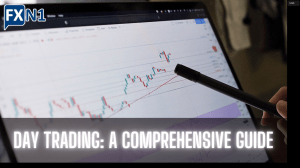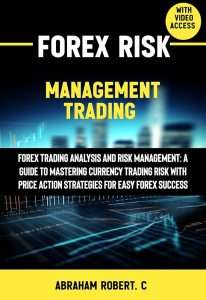Understanding Forex Trading: Risks, Rewards, and How to Avoid Scams
Uncover the truth about forex trading! Learn the risks and rewards, understand the complexities, and make informed decisions before investing. This guide helps you navigate the volatile forex market wisely. Forex Trading
The allure of forex trading, with its promise of quick riches and financial independence, is undeniable․ Many are drawn in by the potential for high returns․ However, the reality is far more nuanced than the glossy advertisements suggest․ Understanding the inherent risks and complexities is crucial before diving into this volatile market․ This comprehensive guide will delve into the often-misunderstood aspects of forex trading, helping you determine if it aligns with your financial goals and risk tolerance․
Understanding the Forex Market
The foreign exchange market, or forex, is a decentralized global marketplace where currencies are traded․ Unlike traditional stock markets with centralized exchanges, forex operates 24 hours a day, five days a week, across multiple time zones․ This global nature presents both opportunities and challenges․ The sheer volume of transactions makes it incredibly liquid, allowing for relatively quick entry and exit from positions․ However, this liquidity also contributes to its volatility, a double-edged sword for traders․
What Drives Forex Prices?
Several factors influence forex prices, creating a dynamic and often unpredictable market․ These include economic indicators like interest rates, inflation, and GDP growth․ Geopolitical events, such as elections or international conflicts, can also significantly impact currency values․ Market sentiment, driven by news reports and trader psychology, plays a crucial role․ Understanding these drivers is essential for successful forex trading, but even with in-depth knowledge, predicting the market with complete accuracy is impossible․
The Risks of Forex Trading
Forex trading carries significant risks, and it’s crucial to acknowledge them before investing any capital․ The most prominent risk is the potential for substantial financial losses․ Leverage, a tool used to amplify trading profits, also magnifies losses․ A small market movement against your position can quickly wipe out your initial investment․ Furthermore, the unpredictable nature of the forex market makes it challenging to consistently generate profits․ Many traders, especially beginners, experience losses rather than gains․
Leverage: A Double-Edged Sword
Leverage allows traders to control larger positions with a smaller initial investment․ While this amplifies potential profits, it also exponentially increases the risk of losses․ A small percentage movement against your position can result in significant losses exceeding your initial investment․ Understanding leverage and managing risk appropriately is paramount for survival in the forex market․ Improper use of leverage is a frequent cause of trader failure․
Is Forex Trading a Scam? Separating Fact from Fiction
The question of whether forex trading is a scam is complex․ It’s not inherently a scam, but it’s susceptible to scams․ Many fraudulent operations prey on unsuspecting traders, promising unrealistic returns and guaranteed profits․ These scams often involve misleading marketing materials, high-pressure sales tactics, and hidden fees․ It’s crucial to thoroughly research any forex broker or trading system before investing your money․
Recognizing Forex Scams
Several red flags indicate potential forex scams․ Be wary of brokers promising unrealistic returns or guaranteed profits․ Beware of high-pressure sales tactics designed to force you into making quick decisions․ Always check for proper regulation and licensing․ Legitimate brokers are regulated by reputable financial authorities․ Thorough due diligence is essential to avoid falling victim to fraudulent schemes․
- Unrealistic promises of high returns: Be skeptical of guarantees or promises that seem too good to be true․
- High-pressure sales tactics: Legitimate brokers will not pressure you into making quick decisions․
- Lack of regulation: Verify that the broker is regulated by a reputable authority․
- Hidden fees: Be aware of all fees associated with trading before you begin․
- Negative reviews or complaints: Research the broker’s reputation online․
Strategies for Safe and Informed Forex Trading
While forex trading involves significant risks, it doesn’t automatically equate to a scam․ Successful trading requires discipline, knowledge, and risk management․ It’s crucial to approach forex trading as a long-term endeavor, rather than a get-rich-quick scheme․ Continuous learning and adaptation are essential for navigating the ever-changing market dynamics․
Developing a Robust Trading Plan
A well-defined trading plan is crucial for success in forex․ This plan should outline your trading goals, risk tolerance, and strategies․ It should include specific entry and exit points, stop-loss orders to limit potential losses, and clear risk management rules․ Sticking to your trading plan, even during periods of market volatility, is vital for long-term success․ Regular review and adjustment of your plan based on market conditions are also necessary․
The Importance of Education and Continuous Learning
Forex trading requires a significant amount of knowledge and understanding․ Beginners should focus on acquiring a solid foundation in fundamental and technical analysis․ Understanding economic indicators, chart patterns, and risk management techniques is crucial․ Continuously learning and adapting to market changes is essential for long-term success․ Stay updated on market trends, news events, and new trading strategies․
Risk Management: Your Shield Against Losses
Effective risk management is paramount in forex trading․ Never invest more money than you can afford to lose․ Use stop-loss orders to limit potential losses on each trade․ Diversify your portfolio to reduce the impact of any single trade going against you․ Regularly monitor your positions and adjust your strategy as needed․ Avoid overtrading, as this can lead to emotional decision-making and increased losses․
Choosing a Reputable Forex Broker
Selecting a reputable forex broker is crucial for a safe and secure trading experience․ Look for brokers regulated by established financial authorities․ Compare fees, trading platforms, and customer support services․ Read reviews and testimonials from other traders to gauge the broker’s reputation․ Ensure the broker offers a user-friendly platform and provides educational resources to support your trading journey․ Never rush into choosing a broker; take your time to conduct thorough research․
- Regulation and Licensing: Verify the broker’s regulatory status․
- Trading Platform: Choose a user-friendly and reliable platform․
- Fees and Spreads: Compare fees and spreads across different brokers․
- Customer Support: Ensure responsive and helpful customer support is available․
- Educational Resources: Look for brokers that offer educational materials․







